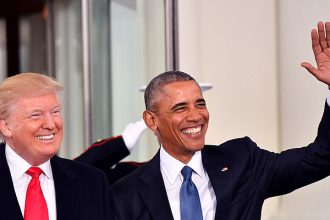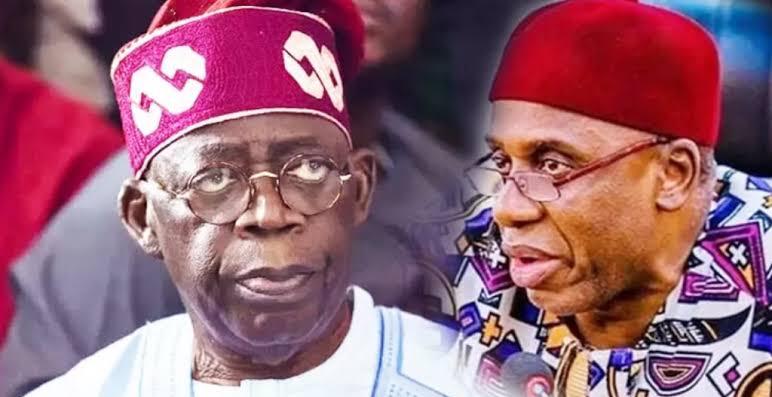Rotimi Amaechi, former Minister of Transportation and ex-Governor of Rivers State, has alleged that President Bola Tinubu’s declaration of a state of emergency in Rivers is a strategic move to pressure governors into supporting his re-election bid in 2027.
Amaechi made the statement in an interview with DW Africa on Friday, criticizing the federal government’s decision as politically motivated.
On March 18, President Tinubu declared a state of emergency in Rivers State, citing prolonged political instability and the destruction of oil infrastructure. The move led to the six-month suspension of Governor Siminalayi Fubara, his deputy Ngozi Odu, and all members of the Rivers State House of Assembly. In their place, the president appointed Ibok-Ete Ibas as the state’s sole administrator.
The decision has sparked widespread criticism, with opposition parties, civil society organizations, and the Nigerian Bar Association (NBA) condemning it as unconstitutional.
Speaking on the matter, Amaechi argued that the emergency rule is a warning to other governors who may not align with the president’s political ambitions.
“The president wants a power grab. They want to frighten governors who may not support them in 2027. There is a rumor everywhere that if you are not careful, the president will remove you,” Amaechi said.
He also dismissed claims that the emergency rule was necessary due to security concerns, noting that similar challenges exist in other parts of the country.
“If the president said it is because of insecurity, because they blew the pipeline, what about other parts of the country facing insecurity? Is the president saying they should impose emergency rule on him too?” he questioned.
Amaechi maintained that security matters fall under the jurisdiction of the federal government, not the Rivers governor.
“Rivers governor has no security responsibility; it rests squarely on the president. So why punish a man who did not commit an offence?” he added.
The former governor called on Rivers residents to resist what he described as an overreach of executive power, urging them to express their opposition through democratic means.
While the presidency has yet to respond to Amaechi’s allegations, the political crisis in Rivers continues to generate debate over the limits of executive authority in a democratic system.




